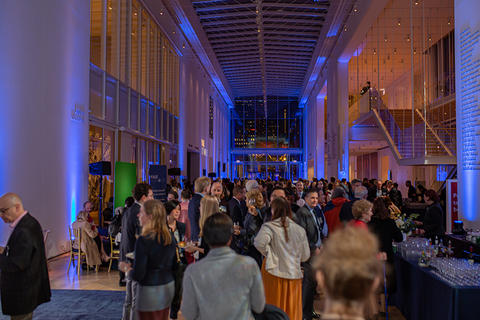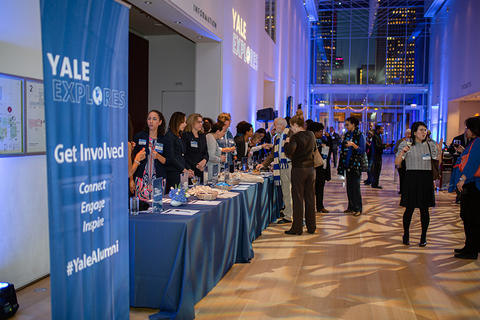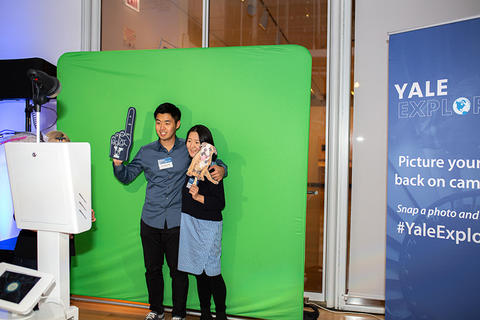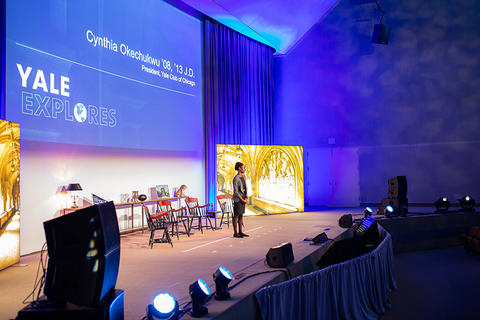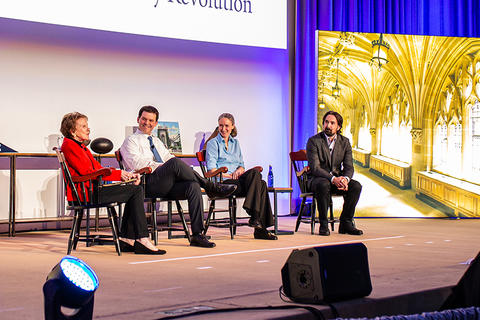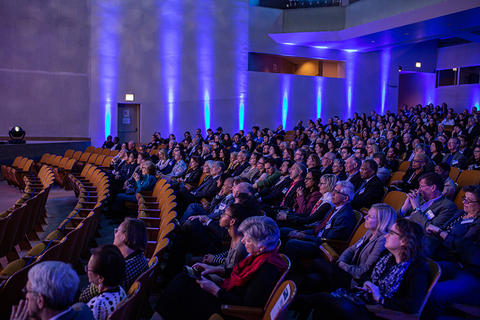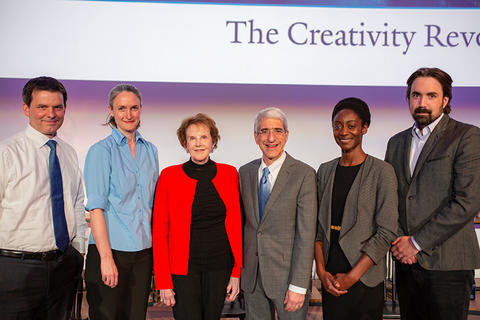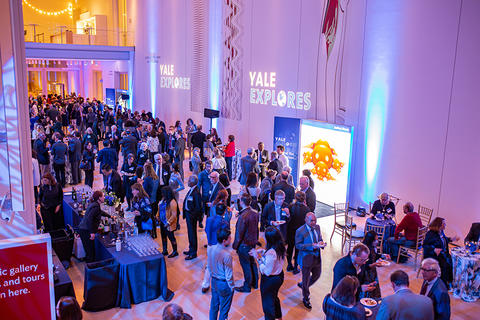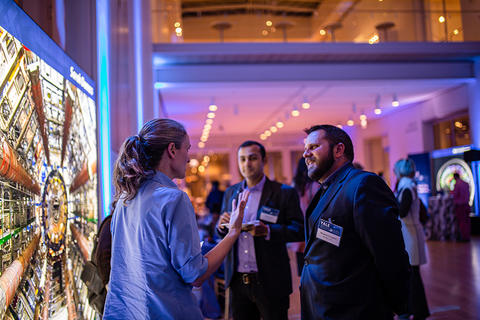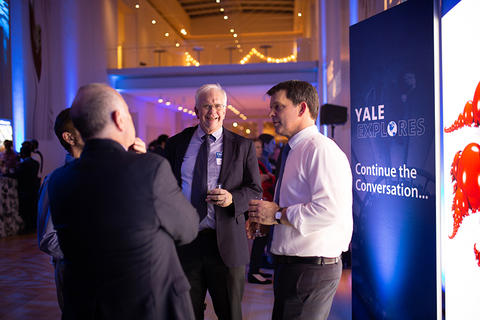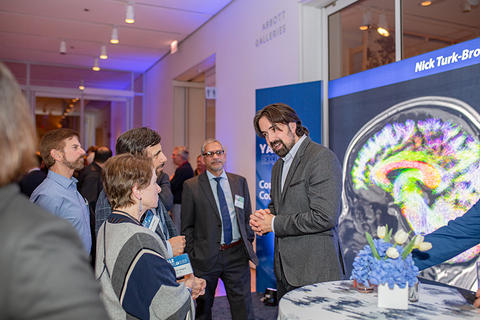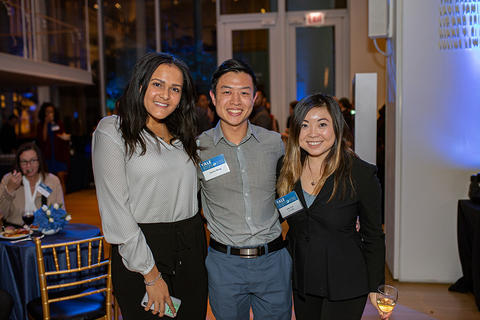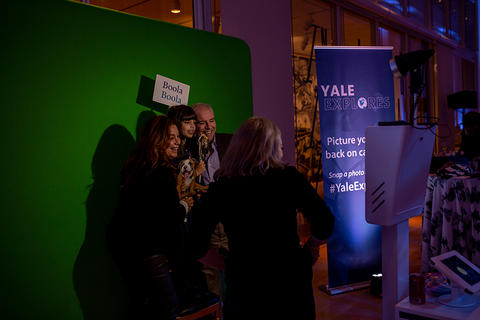October 14, 2019
Art Institute of Chicago
Chicago, IL
Yale Explores kicked off its first programs of the 2019-20 academic year with a busy week, bringing its themes of collaboration, connection, and interdisciplinary learning to stops in Chicago (October 14), Houston (October 16), and Denver (October 18). Yale Explores launched in the spring of 2018 and has now traveled to nine locations. At each stop, the program has highlighted the benefits and necessity of interdisciplinary study and research, all while bringing a piece of Yale to alumni, family, and friends around the country. In all, more than 750 members of the Yale family turned out for the three-city tour this fall.
The program in Chicago, held at the Art Institute of Chicago, focused on creativity and inspiration and featured moderator Margaret Warner ’71 and professors Jeffrey Brock ’92 (engineering), Sarah Demers (physics), and Nicholas Turk-Browne ’09 Ph.D. (psychology), with President Peter Salovey ’86 Ph.D. following their panel discussion with remarks that provided context to the discourse through his own field of social psychology and the wider university lens. “Now, more than ever, we need to invest in a vital and signature element that universities contribute to our economy, society, and future: creativity,” Salovey said. “Unlike any other sector, we bring together the best minds across cultures, national borders, political differences, and socioeconomic divides in the free pursuit of knowledge and understanding, so that we can create new ways to improve the world.”
Moderator
Margaret Warner ’71
2018–2019 Senior Fellow, Yale Jackson Institute for Global Affairs
Former Chief Global Affairs Correspondent, PBS NewsHour
Faculty
Jeffrey Brock ’92
Dean, Yale School of Engineering and Applied Science
Dean of Science, Faculty of Arts and Sciences
Professor of Mathematics
Sarah Demers
Horace D. Taft Associate Professor of Physics
Nicholas Turk-Browne ’09 Ph.D.
Professor of Psychology
Closing Remarks
Peter Salovey ’86 Ph.D.
President and Chris Argyris Professor of Psychology


